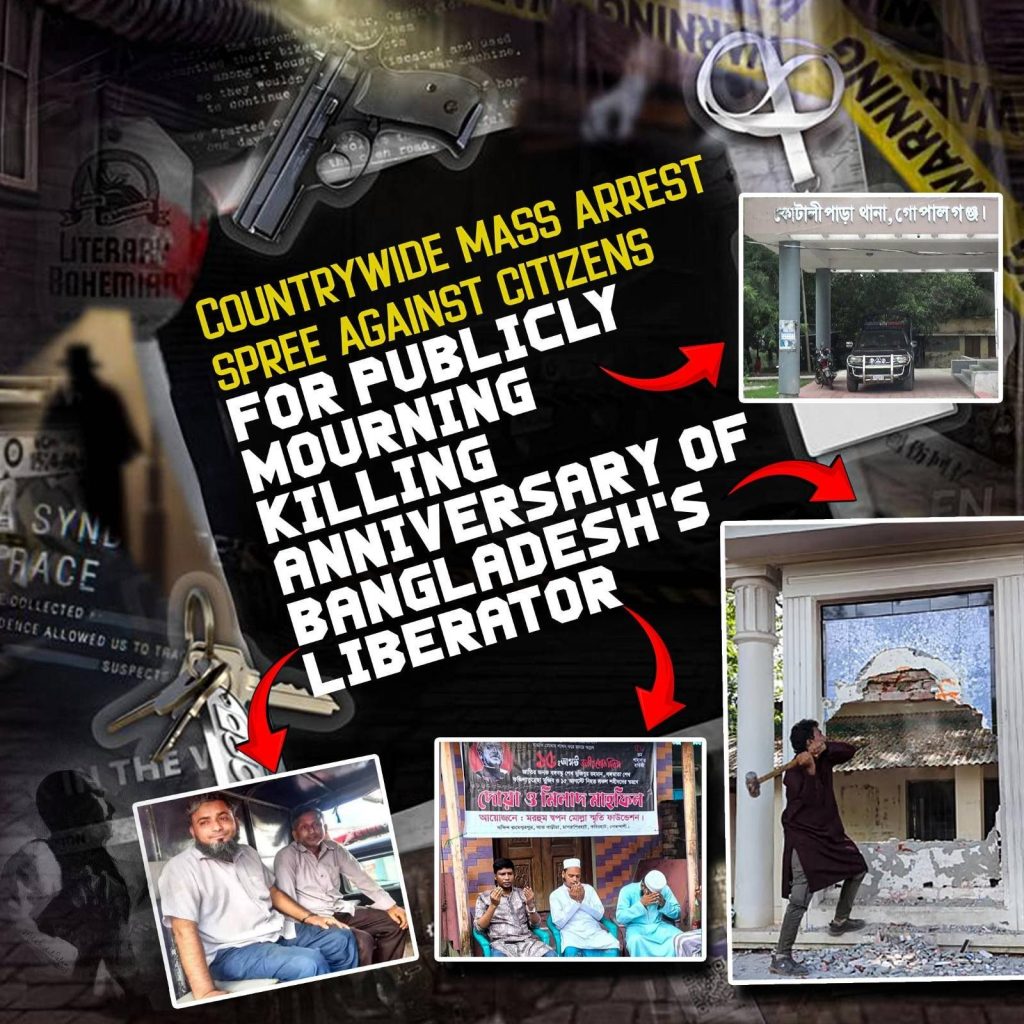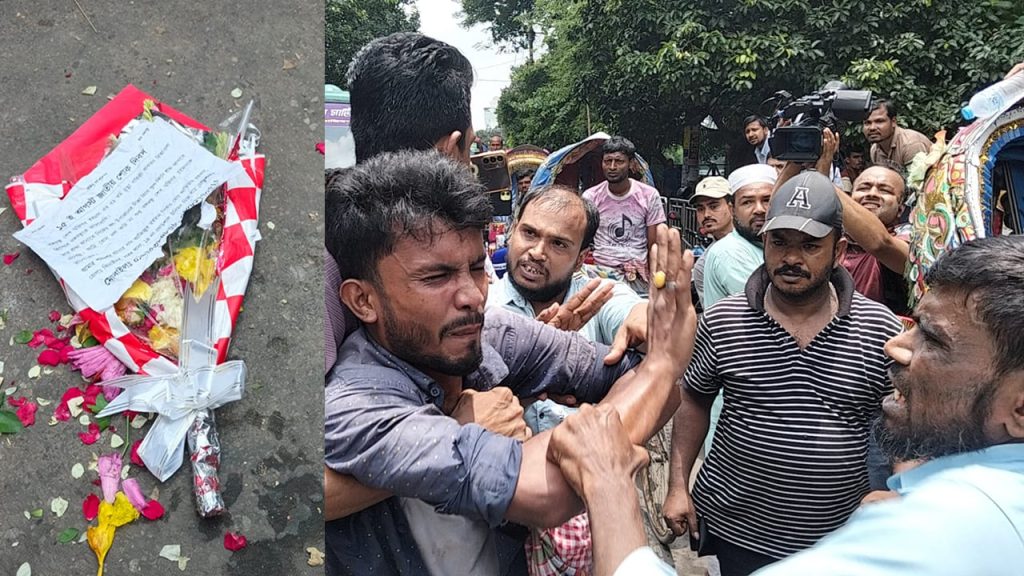On August 15, the day that marks the assassination of the nation’s founding father, Bangabandhu Sheikh Mujibur Rahman, citizens who dared to remember their liberator found themselves hunted, silenced, and dragged into darkness.
As state institutions bend under the iron grip of Muhammad Yunus, ordinary people—teachers, students, religious scholars, women, even rickshaw pullers—have become helpless victims, crushed under the weight of his vengeance, Bangabandhu’s grandson Sajeeb Wazed said in a post on X on Sunday.
What once was a day of unity and mourning has now turned into a battlefield of fear, he said, outlining the situation in an article.
Tribute to Bangabandhu: Yunus served Jamaati agenda, instigated mob
Sajeeb Wazed thanks people showing respect to Bangabandhu
Will raise victory flag from the ruins of Dhanmondi 32 once again, says Sheikh Hasina
Analysts say that Yunus is slowly working to take Bangladesh back to the East Pakistan era by eliminating the Awami League from the political arena, undermining Bangabandhu and the spirit of the 1971 Liberation War, and establishing mobocracy.

The anticipation gets further footing as the Dhaka-Delhi relations worsen, and ties with Islamabad with regard to diplomacy, trade and defense collaboration become the interim government’s key priority.
A Nation Stripped of Its Right to Remember
For decades, the anniversary of Bangabandhu Sheikh Mujibur Rahman’s killing was observed with prayer, reflection, and charity. Mosques filled with supplications, communities came together to feed the hungry, and murals stood tall to remind future generations of the Liberation War’s sacrifice.
But under Yunus’s rule, these sacred traditions have been stolen from the people.
Remembering the martyrs of 15th August
With an unconstitutional ban, he declared mourning illegal. And when citizens defied his order, choosing dignity over fear, they paid the price.
Mob Terror and Mass Detention
In Dhaka, Yunus’s loyal enforcers unleashed terror. Livelihoods were torn away as arbitrary arrests swept through neighbourhoods. Across the country, murals were vandalised, prayers disrupted, and citizens dragged from their homes into waiting prison vans.

Under this climate of oppression, anyone who mourns the nation’s liberator is now branded an “enemy of the state”—a cruel irony wrapped in the false pretense of “fighting fascism.”
Demand for return to East Pakistan, led by Yunus-Azmi, growing in Islamabad, Dhaka
Islamists building a mosque near Chandranath Temple 90% confirmed
Yunus’ goal is chillingly clear: to erase the memory of the Liberation War, to rewrite history, and to present himself as the so-called “reset liberator” of Bangladesh.
Threats, Defiance, and Brutal Crackdowns
On the eve of August 15, Yunus’ press secretary, Shafiqul Alam, openly threatened citizens, warning them not to organise mourning events. But the people defied the threat. They prayed, they gathered, and they remembered.
In return, Yunus-backed police forces struck with fury. Teachers, imams, professionals, and community leaders found themselves behind bars overnight. Their only crime is loyalty to memory and truth.
Ill-Fated Cases of Repression
The brutality was not abstract. It carried names, faces, and shattered families:
• Kishoreganj, August 15: Two teachers—Sarwar Jahan Nayem and Russel Shikder—were arrested for the simple act of offering prayers in memory of Bangabandhu.
• Noakhali, August 14: An Imam and two associates were taken by police for arranging a humble dua mahfil.
• Gopalganj, August 15: Police detained and falsely branded five men as Awami League members, accusing them of distributing free meals to the poor.
• Satkhira, August 15: A mural of Bangabandhu, a beacon of history and sacrifice, was demolished in broad daylight as bystanders watched in horror.
A Nation Under Siege
Bangladesh now stands at a dangerous crossroads. When remembering the Father of the Nation is branded a crime, when prayers and charity are met with handcuffs and prison cells, then the very soul of the Republic is under siege.
But history cannot be erased. No regime, no decree, and no chain of prisons can silence the spirit of people who know their truth.
On August 15, Yunus may have tried to bury memory with repression, but in every arrested teacher, every silenced imam, and every broken mural, the legacy of Bangabandhu burns brighter still.